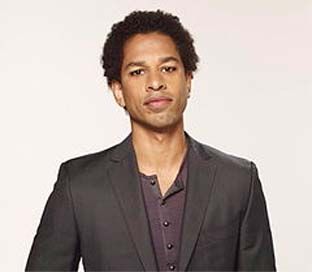It never ceases to amaze me, the number of ways new memes are tossed out in this country to twist pretzel-like the reality of “race” and how we deal with it. The new opportunism includes black Americans who jump on the bandwagon of book selling to justify themselves as heralds of acceptability, and who push these themes on order to line their pockets, and achieve instant pundit status-by garnering the imprimatur of the New York Times, and other weighty media outlets.
The latest addition to the book pile is Who’s Afraid of Post-Blackness?: What It Means to Be Black Now, by Touré (he has only one name apparently) with a foreword by Michael Eric Dyson (why am I not surprised?)
First we were “post-racial”, moving into a (cough) colorblind world, now we are somewhere else I suppose.
Though I may argue that we need to undermine “race” as a social construct, in order to eventually eliminate racism, that in no way means I want to shuck off my “blackness” which is a cultural thing of which I am extraordinarily proud. Nor will that embrace stop me from pointing out Fanon-like, those black folks who can’t wait to either hold hands happily with somebody who has their foot on our collective neck, or those who pander to be crowned with token acceptability, or used as tools to shut up my black mouth as they are adopted by liberals as members of the Critic of the Month Club (can you hear me Cornel?)
Randall Kennedy at The Root, has written an insightful critique of this post black contradiction…no point for me to rehash all his words – read the whole thing for yourselves.
The Fallacy of Touré’s Post-Blackness Theory
I will post a teaser.
What Touré and his allies seek to escape are fundamental aspects of any community: boundaries and discipline. Every community — be it a family, firm or nation-state — necessarily has boundaries that distinguish members from nonmembers. That boundary is a constituent element of the community’s existence. Touré could opt to reject affiliations that are organized around racial identity. He could abandon blackness or post-blackness or any and all racial labelings and groupings. But Touré eschews that option. It is, among other things, all too unpopular for his taste.
Despite his avant-garde pretensions, Touré is at bottom rather conventional: a politically liberal black guy who wants to make it in the white-dominated world of print journalism and television broadcasting without catching flak from “brothas” and “sistahs” because of the way he talks (preppy), because of his significant other (a woman who is not African American) and because of his attachment to ideas that he knows some blacks will disdain. Touré voices, for instance, an instrumental patriotism: “We may need to more fully embrace our American-ness in order to maximize the power we have as individuals and as a collective.” He praises “Black people who can make the leap to loving and trusting white people” because these African Americans “have far more ability [than others] to climb the ladders of power.” He frankly propounds a preference for insiderism:
We need more and more Blacks sitting at tables of real power. Let’s be like Barack and get what we want from America in spite of racism … Let’s buy into the promise of America and get what we deserve: a place in the American life lottery. Let’s come home. You can fight the power, but I want us to be the power.
Aware that some African Americans will see in these beliefs an ugly ethic of racial brownnosing aimed merely at attaining robust tokenism, Touré seeks a general truce whereby blacks forgo judging the racial politics of one another. But that aim is futile; judgment is inevitable. Touré claims to accept as equally “Black” all beliefs advanced by African Americans. But he doesn’t really believe this. He insists repeatedly, for instance, that he is no “oreo” — an inauthentic Negro — black on the outside but white on the inside. In saying that he is not an oreo, however, Touré concedes that someone is.
For me, there is no contradiction in embracing my blackness, and in accepting someone’s “whiteness” or “latinoness” or “jewishness” either as a family member, or friend.
Kennedy’s conclusion is:
Those who want to maintain black community while containing the peer pressure that makes collective action possible must recognize that solidarity always poses a problem of balance between unity and freedom. That is why libertarian romanticism is untenable when conjoined with a desire for collective advancement.
Mine follows the same train of thought. I will continue to organize in “the black communities” I have been in since birth. No matter my social class, no matter my multi-ethnic ties. As long as black folks are oppressed in this country for being black, we aren’t “post” anything, and I’ll point my black finger at anyone – black or other, who gets in the way of that struggle.
Jus’ my 2 black cents this morning.

58 comments